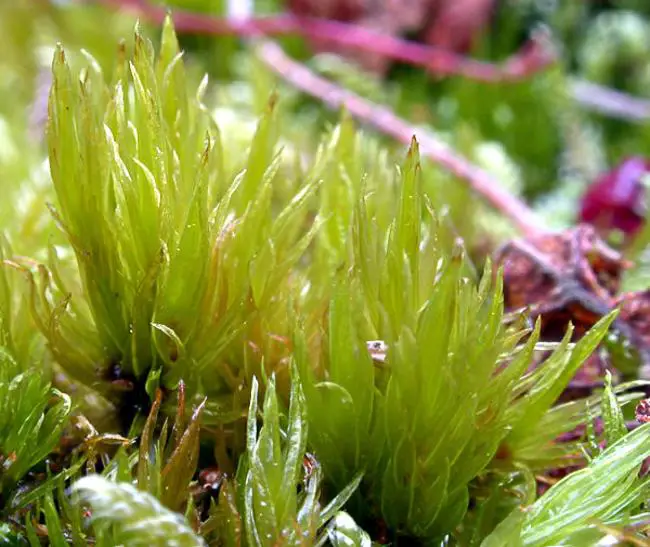
03-19-Dicranum_bergeri.jpg from: https://www.britishbryologicalsociety.org.uk/learning/species-finder/dicranum-undulatum/
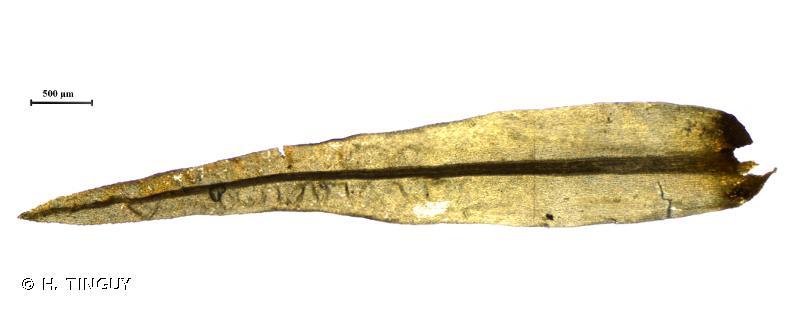
203913.jpg from: https://inpn.mnhn.fr/espece/cd_nom/436308?lg=en
Introduction
In the vast and captivating world of bryophytes, the Dicranum undulatum Schrad. ex Brid. moss stands out as a remarkable representative of the Dicranaceae family. Also known simply as Dicranum, this unassuming yet fascinating plant has captured the hearts of moss enthusiasts worldwide with its unique characteristics and ecological significance.
Background
Before delving into the intricacies of this moss species, it’s essential to understand its taxonomic classification.
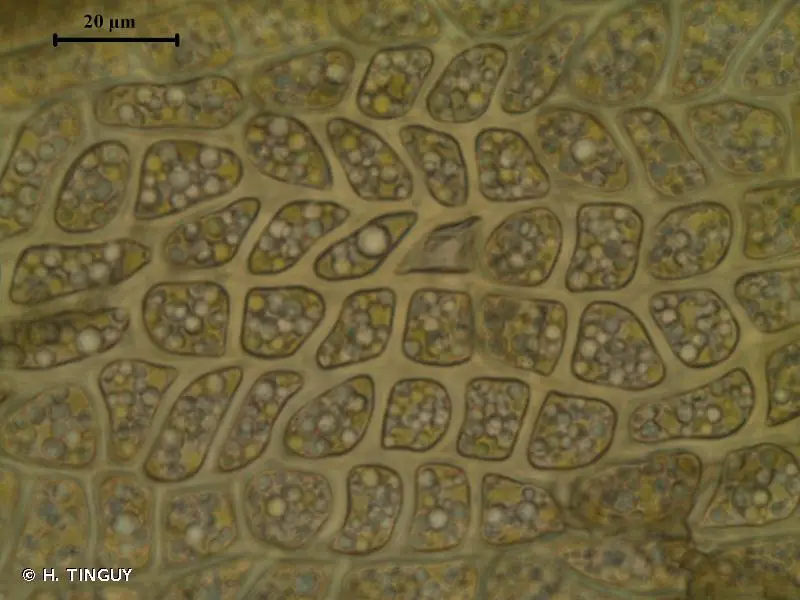
203915.jpg from: https://inpn.mnhn.fr/espece/cd_nom/436308
Dicranum undulatum belongs to the phylum Bryophyta, which encompasses all mosses, liverworts, and hornworts. Within this phylum, it is part of the class Bryopsida, the true mosses.
Main Content
Morphology and Identification
Dicranum undulatum is a acrocarpous moss, meaning its sporophytes (spore-bearing structures) grow at the tips of the stems. Its
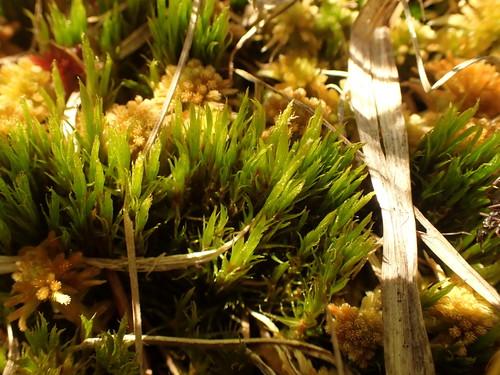
medium.jpeg from: https://www.inaturalist.org/taxa/161873-Dicranum-undulatum
undulating leaves, which give the species its name, are a distinctive feature. These leaves are lanceolate in shape, with a wavy or crisped appearance along the margins. The leaf cells are elongated, and the costa (midrib) is
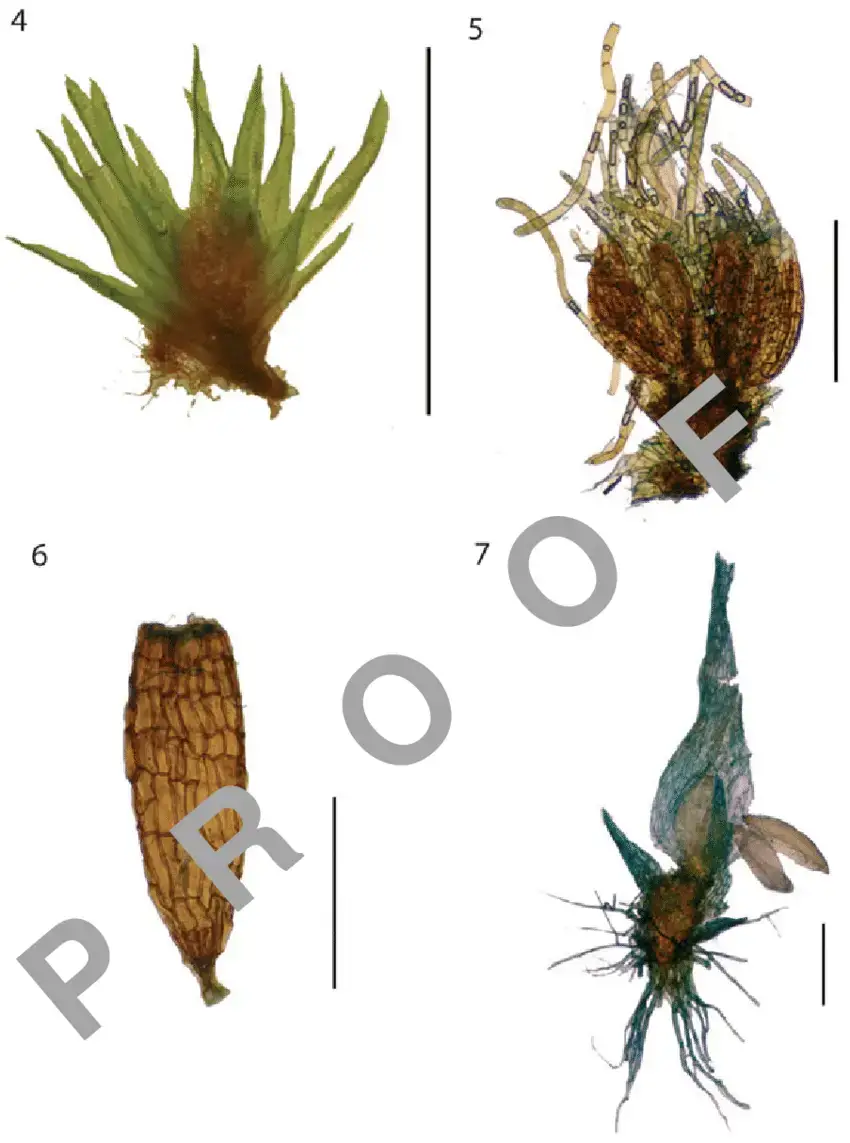
7-4-Dwarf-male-of-Dicranum-undulatum-Schrad-ex-Brid-scale-3-mm-5-Paraphyses-and.png from: https://www.researchgate.net/figure/7-4-Dwarf-male-of-Dicranum-undulatum-Schrad-ex-Brid-scale-3-mm-5-Paraphyses-and_fig2_281128876
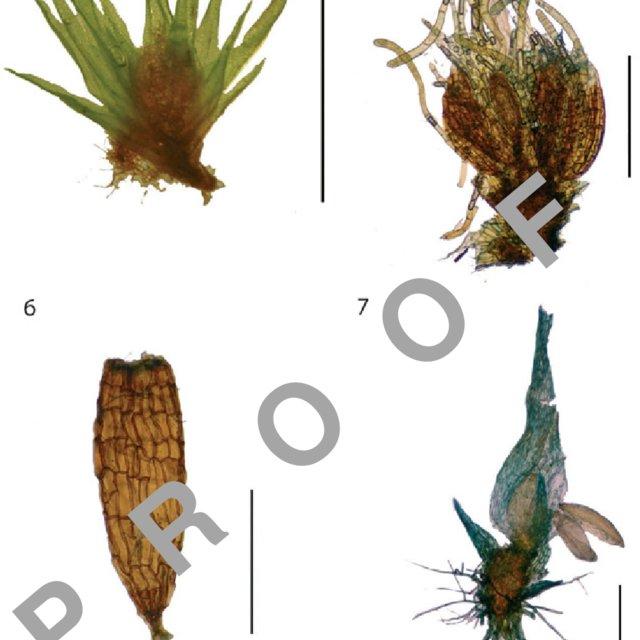
7-4-Dwarf-male-of-Dicranum-undulatum-Schrad-ex-Brid-scale-3-mm-5-Paraphyses-and_Q640.jpg from: https://www.researchgate.net/figure/3-1-Female-plant-of-Dicranum-undulatum-Schrad-ex-Brid-2-Dwarf-males-of-Dicranoloma_fig1_281128876
prominent, extending nearly to the leaf apex.
Global Distribution and Habitat
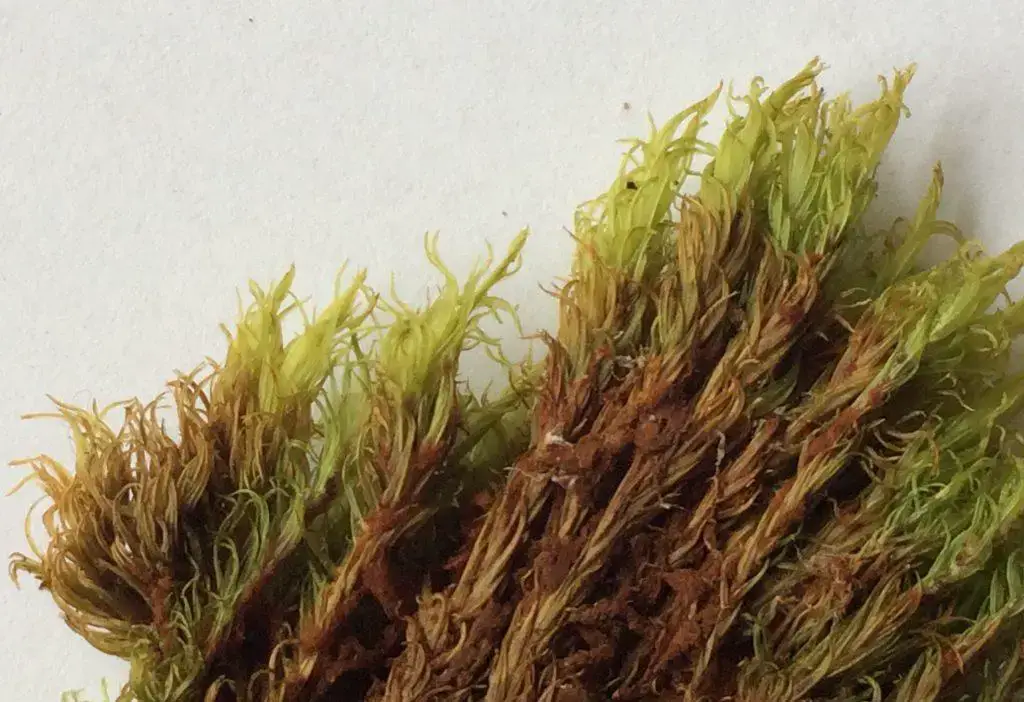
Dicranum_undulatum_7973_3-1024×702.jpg from: https://qjure.com/remedy/dicranum-undulatum-6/
This moss species has a widespread distribution, occurring across various regions of the Northern Hemisphere, including Europe, Asia, and North America. It thrives in acidic environments, often found growing on rotting logs, stumps, and humus-rich soils in coniferous and mixed forests.
Ecological Roles and Adaptations
Dicranum undulatum plays a crucial role in forest ecosystems, contributing to nutrient cycling and soil formation. Its ability to colonize decaying wood and humus-rich substrates makes it a pioneer species, facilitating the establishment of other plants and creating microhabitats for various organisms.
One of the remarkable adaptations of this moss is its desiccation tolerance. During dry periods, its leaves curl inward, minimizing water loss and protecting the delicate internal structures. This resilience allows
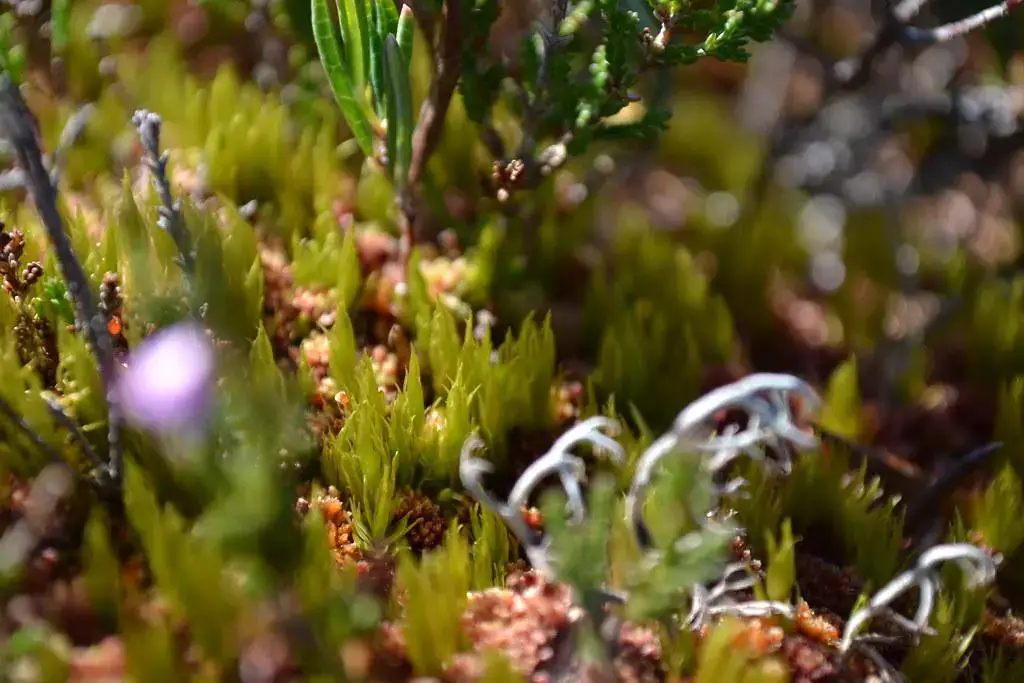
8708603328_9a5a57a976_b.jpg from: https://www.flickr.com/photos/95549735@N08/8708603328/
Dicranum undulatum to thrive in environments with fluctuating moisture levels.
Case Studies/Examples
In a study conducted in the Białowieża Forest in Poland, researchers found that Dicranum undulatum was one of the most abundant moss species in the area, playing a vital role in the forest’s biodiversity and ecosystem functioning.
Technical Table
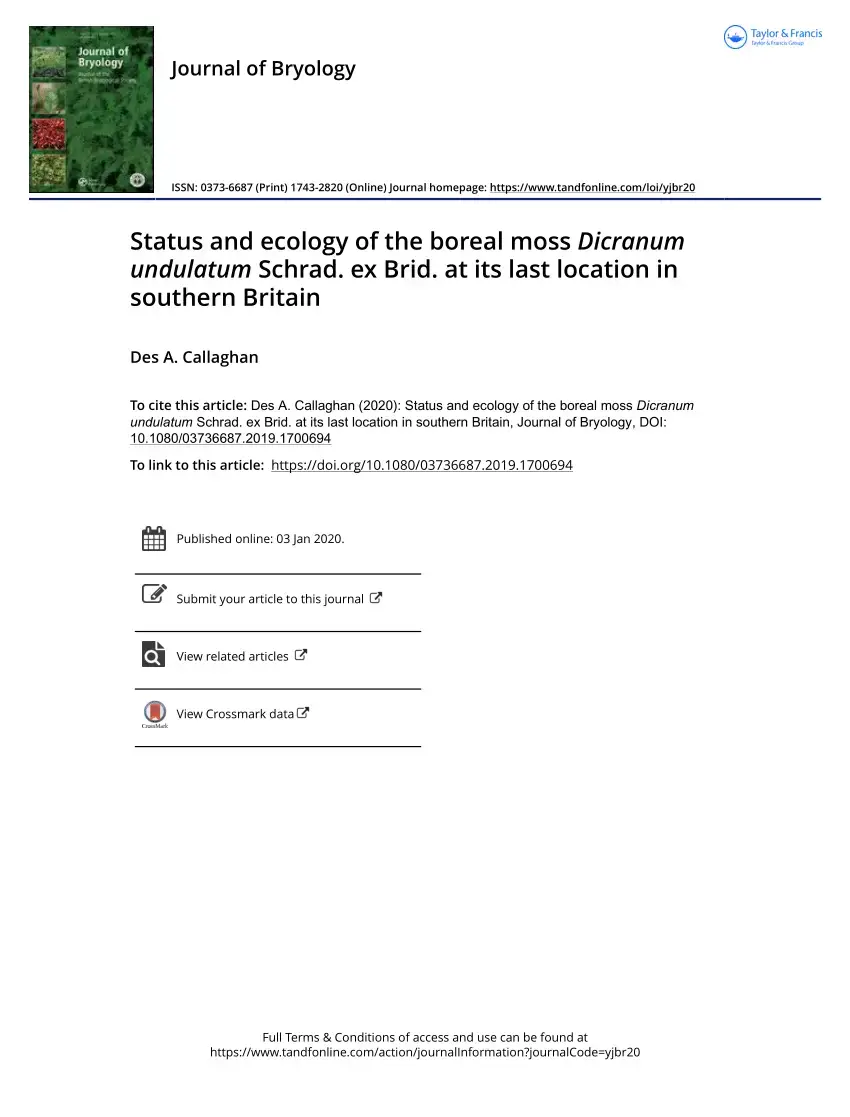
largepreview.png from: https://www.researchgate.net/publication/338387690_Status_and_ecology_of_the_boreal_moss_Dicranum_undulatum_Schrad_ex_Brid_at_its_last_location_in_southern_Britain
| Characteristic | Description |
|---|---|
| Phylum | Bryophyta |
| Class | Bryopsida |
| Family | Dicranaceae |
| Genus | Dicranum |
| Species | undulatum |
| Growth Form | Acrocarpous |
| Leaf Shape | Lanceolate, undulating |
| Leaf Margin | Wavy or crisped |
| Leaf Cells | Elongated |
| Costa | Prominent, extending nearly to leaf apex |
Conclusion
The Dicranum undulatum Schrad. ex Brid. moss, with its undulating leaves and remarkable adaptations, serves as a testament to the resilience and beauty of bryophytes. As we continue to explore and appreciate the intricate world of mosses, let us ponder: What other wonders await discovery in the realm of these unassuming yet extraordinary plants?
Dicranum-spurium-3-800×533.jpg from: https://ohiomosslichen.org/moss-dicranum-spurium/